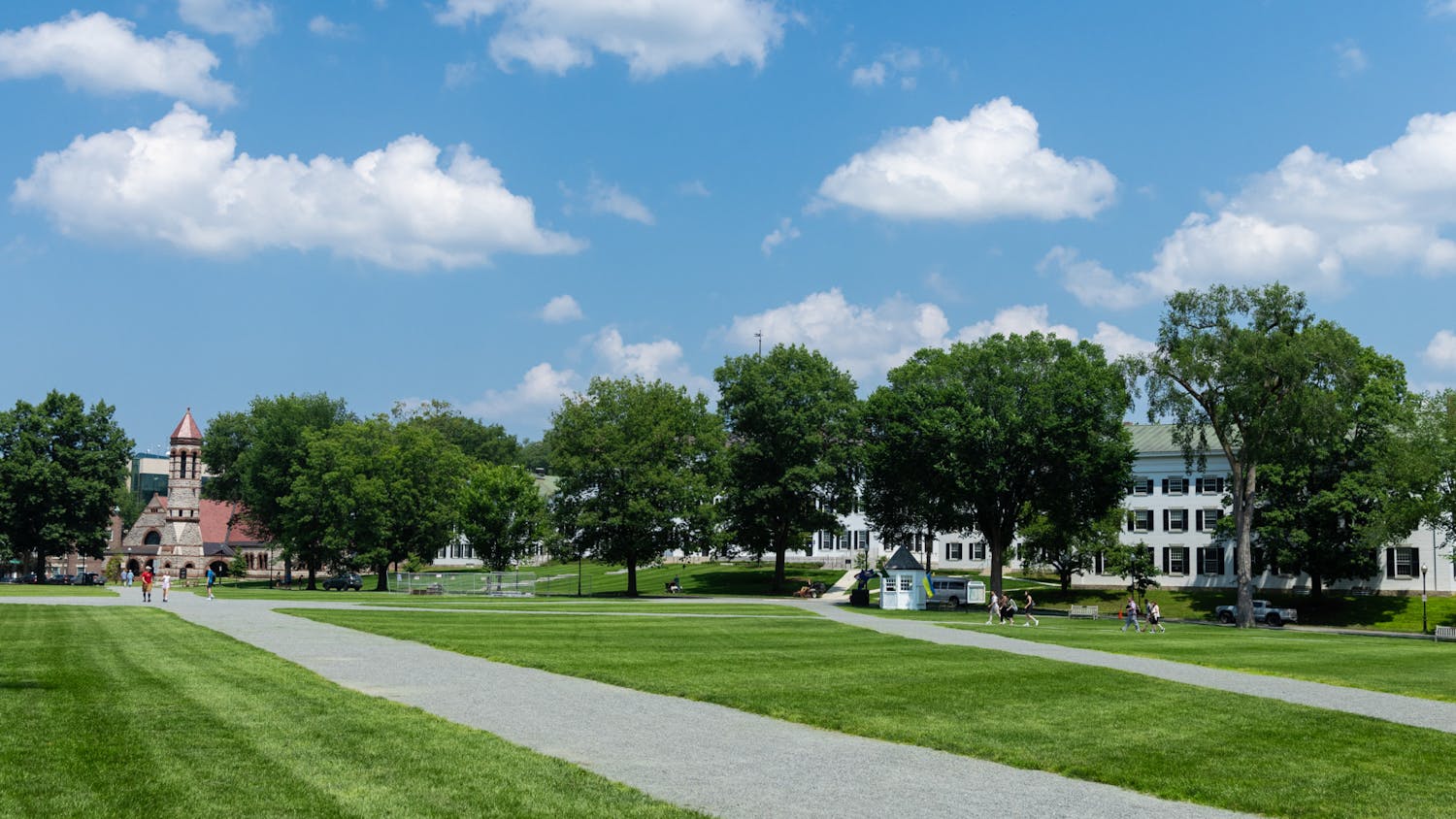Amarna, one of Dartmouth's two undergraduate societies along with Panarchy, serves as a comfortable, safe and open space for socialization on campus that constantly redefines itself based on its changing membership, Miklin said.
Located at 23 East Wheelock Street, Amarna was founded in 1994 as an alternative to Greek organizations, Miklin said. The original founders of the house were former presidents and officers of Greek houses who de-pledged their respective fraternities and sororities, and the house had a very large "anti-Greek" membership, Amanda Mata '11, who has been active in Amarna since her freshman year, said.
Since then, Amarna has attempted to form an identity of its own, Miklin said. Amarna no longer considers itself "anti-Greek" and is part of the Coed Council. Amarna works with other houses such as Phi Tau and Alpha Theta coed fraternities, which have many "similar ideas," she said.
The house is trying to shift to just being "a space," Mata said, as it is hard to define oneself as being the opposite of something.
Amarna allows its members to join Greek organizations as well, treasurer Zachary De '12 said. De and other members have been active in the Tabard coed fraternity, he said.
While there is some overlap between the groups and attendance at social events, Amarna and Phi Tau are very different, Blaine Ponto '14 said in an email to The Dartmouth. Ponto is an active member of Amarna and Phi Tau coed fraternity. She will also be the coed council president this spring.
Amarna is "one of the most underappreciated alternative social spaces on campus," she said, adding that its open membership policy makes it extremely accessible.
While she found Amarna her freshman year, Ponto said she discovered Phi Tau later on and "fell in love with the very different atmosphere of a more organized and slightly more Greek' house."
Amarna and Phi Tau share some characteristics such as diversity in membership, but they ultimately have different agendas, people and "vibes," Ponto said.
Amarna's largest events are Monday Night Dinners, during which the house hosts a home-cooked dinner with a professor, and its termly Wine and Cheese party. The Wine and Cheese event enjoys a fairly large turnout, with other events seeing approximately 50 people pass through the house, Miklin said. Different events and parties are organized each term based on the interests of the current membership.
"We have some traditions but are also really open to bringing in new ideas and just letting the membership construct the house," she said.
Amarna members interviewed by The Dartmouth agreed that the activities of the house constantly change depending on the interests of the current membership. Members generally have their own "puppy issue," and the house evolves to reflect their unique passions, from sustainability to hosting "bad movie Sundays," Miklin said.
Unlike Greek housing, not everyone who lives in Amarna is a member of the house. While preference is given to Amarna members, the Office of Residential Life owns the building, and other students move into unfilled rooms. Sometimes, however, non-members who live in Amarna become very involved in the house and eventually join, Miklin said.
Amarna currently has a membership of 20 to 25 and can best be described as a clubhouse or a co-op, Mata said. Amarna is one of the few places at Dartmouth where a strong adherence to tradition does not exist. This makes it hard to define a typical Amarna member, Mata said.
As an organization, Amarna struggles with creating its own identity and increasing its visibility on campus. Members expressed frustration with Amarna's exclusion from campus discussions and a lack of campus awareness about the house. The fact that relatively little is known about Amarna may result from its isolated location, confusion surrounding the house and its "silly parties with silly names," Miklin said. This insufficient understanding means that most of the "pull" to house membership and events comes from mutual friends, she said.
Other misconceptions about Amarna exist, such as the belief that the house cannot serve alcohol or has other restrictions placed on its events, De said.
Although she had planned to be unaffiliated, Christine Garcia '13 joined Amarna her sophomore winter, she said in an email to The Dartmouth.
"Essentially, I joined because I felt welcomed from the first time I walked in the door," Garcia said.
The idea of an undergraduate society without a rush period, rush selection and pledge term also appealed to Garcia, who said she saw these processes as negative aspects of the Greek system.
The fact that Amarna is completely open and non-selective with membership means that a diverse group of people joins the house, De said. Currently, many international students are members of the house as they may not be interested in joining the Greek system, he said. Students can officially become members of Amarna their sophomore year, but there is a high level of involvement from "non-official" members, Mata said. These students may be freshmen, who are not eligible to join the house, or simply members of campus who are regular participants at events.
Miklin encouraged everyone to explore what Amarna has to offer, from people who are not interested in social organizations at all to those who are very involved in the Greek system.
"Over the past couple of weeks, a lot of people have been calling for alternative social spaces, spaces where everyone is equal," Miklin said. "There is no hazing, there is no pressure to consume alcohol."




